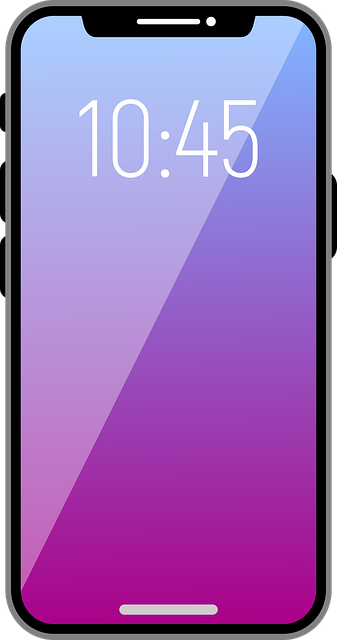Data anonymization is a critical process in the digital age to safeguard individual privacy. In North Carolina, with its stringent data protection regulations, law firms specializing in spam text cases emphasize the importance of anonymizing data to prevent privacy breaches. Techniques like generalization, suppression, and perturbation ensure confidentiality while allowing organizations to use anonymized datasets for research. Popular methods include Spam Text Filtering and data perturbation tailored to legal needs, such as those sought by clients looking for a Spam Text Lawyer North Carolina or Spam Text Attorney North Carolina. Strict regulations govern spam texts and calls, with law experts guiding businesses on consent management and delivery protocols to avoid fines and maintain consumer trust. Engaging a Spam Call Law Firm North Carolina or hiring Spam Call Lawyers North Carolina is vital for bulk messaging compliance.
“Exploring Data Anonymization: Protecting Privacy in the Digital Age”
In today’s data-driven world, ensuring privacy and security is paramount. This article delves into Rowlands analysis of data anonymization techniques, offering a comprehensive guide to protecting sensitive information. We explore the critical role of anonymization in combating issues like spam text and calls, focusing on legal perspectives in North Carolina. From popular methods to specialized techniques, this review aims to equip readers with insights, especially those seeking guidance from top-tier Spam Text Lawyers in North Carolina or Spam Call Attorneys, to navigate data privacy effectively.
Understanding Data Anonymization: The Role of Techniques in Protecting Privacy
Data anonymization is a critical process that plays a pivotal role in safeguarding individual privacy in an era dominated by vast data collection. It involves techniques designed to remove or obscure personally identifiable information (PII) from datasets, ensuring that sensitive details about individuals remain confidential. In today’s digital landscape, where personal information is often at risk of misuse or unauthorized access, understanding these anonymization techniques becomes paramount for both data handlers and consumers alike.
In North Carolina, as in many jurisdictions, the law firms specializing in spam text cases and spam call lawsuits recognize the importance of data anonymization in preventing privacy breaches. A ‘Spam Text Lawyer North Carolina’ or a ‘Spam Call Attorney North Carolina’ would emphasize that effective anonymization techniques are essential to comply with data protection regulations. By employing methods such as generalization, suppression, and perturbation, organizations can mitigate the risk of exposing sensitive data while still utilizing anonymized datasets for research, analysis, and other purposes without compromising privacy rights.
A Comprehensive Review of Popular Anonymization Methods
In today’s digital era, where data privacy and security are paramount concerns, various anonymization techniques have emerged as essential tools to protect sensitive information. Rowlands analysis provides a comprehensive review of popular methods used to safeguard personal data from prying eyes. One widely adopted approach is Spam Text Filtering, which utilizes advanced algorithms to detect and remove unwanted or malicious messages, ensuring that only legitimate communications reach individuals’ inboxes or devices. This technique is particularly relevant for Spam Text Lawyers in North Carolina and Spam Call Law Firms who deal with a high volume of unsolicited messages, helping them focus on genuine client interactions.
Additionally, anonymization through data perturbation stands out as a game-changer. This method involves modifying or masking sensitive attributes within datasets while still preserving their utility for analysis. For instance, in Spam Text North Carolina scenarios, personal identifiers can be replaced with pseudonyms, allowing researchers and legal professionals to work with de-identified data while mitigating privacy risks. Such techniques are invaluable when seeking legal counsel for Spam-related issues in North Carolina, as they enable a deeper understanding of trends without compromising client confidentiality.
Legal Perspectives on Spam Text and Call Management in North Carolina
In North Carolina, as in many states across the country, the legal landscape surrounding spam text and spam calls is highly regulated to protect consumers from unsolicited and often intrusive messaging. The Spam Text Lawyer North Carolina plays a crucial role in ensuring compliance with these regulations, which are designed to safeguard personal privacy and prevent deceptive practices. Legal perspectives on spam text in North Carolina not only address the content of the messages but also the methods used to deliver them, encompassing both telephone calls and text communications.
For businesses operating in this state, engaging a Spam Call Law Firm North Carolina or hiring Spam Call Lawyers North Carolina is essential to navigate the complex legal framework surrounding these issues. These professionals help organizations understand and adhere to the spam call law by providing guidance on consent management, content restrictions, and delivery protocols. Given the potential penalties for non-compliance, including substantial fines, it’s vital for companies dealing with bulk messaging to seek expert advice from a lawyer for Spam Text North Carolina to mitigate legal risks and maintain consumer trust.






